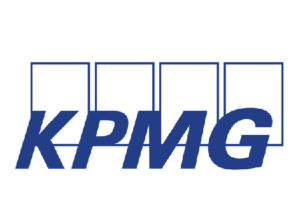BABN CEO Update: New Truss Administration Sets Out Its Pro-Growth Ambitions In Dramatic Fiscal Statement

Duncan Edwards, CEO
BritishAmerican Business
An astonishing period in UK politics culminated on Friday, Septmeber 23rd with a dramatic series of budgetary announcements made by the new Chancellor, Kwasi Kwarteng, in a what was billed as a ‘fiscal event’ but was, in reality, more consequential than most annual budgets of the last 30 years.
The new administration, led by Liz Truss, set out its stall as a pro-business, pro-growth, pro-aspiration government in what felt like a clear break from the social democrat consensus that has dominated British politics for the last two decades. Everyone will have their own views as to the politics of this, but a combination of tax reductions, pro-investment incentives and protection from energy price increases should be welcome to a business sector that has struggled to get the recognition from government for its role in driving the economy and will further strengthen the UK’s already strong position as a destination for inward investment from the USA and elsewhere around the world.
The initial reaction from the markets was a further hammering for the Pound, but this is more a story of dollar strength than anything else as a glance at the trends for the Euro and Yen will tell you. With, at most, two years until the next election there is a going to be a clear battle of ideas between the two major parties. You can see our statement on the announcement here.
This all happened just a couple of weeks after Liz Truss won the Conservative Party leadership election and was asked to from a government by Queen Elizabeth in her last official act. I won’t add to the extensive commentary about the reign and end of the longest serving British monarch other than to say that I was very pleased to be in London on the day of the funeral. The dignity and pageant of the ceremonies exhibited the best of British culture and I know a lot of people felt their pride in their British nationality or connections renewed and strengthened.
In the USA, the focus continues to be firmly on the mid term elections and a clear shift in sentiment about the outcome, from a monstrous shellacking for the Democrats to a much more even contest. The consensus view remains that the Republicans take the House but by a much smaller margin than previously thought and that the Senate will be much closer. Some Democrat commentators are confident of a Senate win for the Administration with a potential two seat majority. A previously becalmed Biden presidency has had a series of legislative wins over the last few months and the Dobbs decision at the Supreme Court has clearly motivated some voters. At the same time the ongoing drama surrounding Trump (and some unusual GOP senate candidates) is contributing to the projected outcome.
We understand the US administration feels it has a strong partner in Liz Truss on the major geo-political issues of our time. Certainly, the Prime Minister’s comments on her visit to the UN suggest she will continue Johnson’s robust support for the Ukrainian defense efforts and is clearly going to be more hawkish on China than her somewhat equivocal predecessor. It is the security and intelligence relationship that is at the heart of the ‘special relationship’ and this seems totally solid. The PM rightly acknowledged that the Free Trade Agreement that we would all like to see is off the table for the short to medium term and this will give her a window to resolve the Northern Ireland problems with the EU without threats from the White House and Congress. In truth, this US administration has no interest in new trade agreements which will have to wait until after the 2024 election.












































